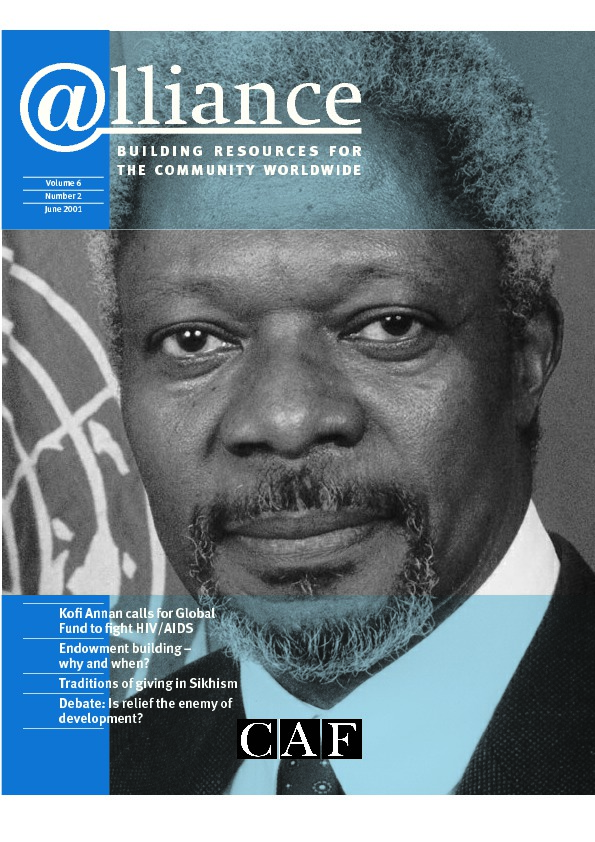Several leading Western foundations became involved in supporting democracy and civil society development in Central and Eastern Europe more than a decade ago, soon to be followed by various governmental agencies. Once stable market economy regimes and basic democratic systems were established, however, the attention of foreign donors began to shift to other areas.
The social costs of economic and political transformations turned out to be higher than expected. A vigorously developing non-profit sector tried to fill the gap and to help those lagging behind. The sector has now become an important factor in shaping public policy, promoting civic engagement and monitoring the performance of authorities at all levels.
Despite the premature withdrawal of major governmental donors, the independent foundations, feeling a responsibility to round off their engagement in the development of democracy in Central and Eastern Europe, last year formed a new entity to promote the development and long-term stabilization of civil society and NGOs in the region.
The new organization, the Trust for Civil Society in Central and Eastern Europe, aims to have US$75 million to spend over a ten-year period. Founders include the Charles Stewart Mott Foundation, the Ford Foundation, the German Marshall Fund of the United States, the Open Society Institute and Rockefeller Brothers Fund, which have already committed more than $60 million.
The Trust will work in seven countries – Bulgaria, the Czech Republic, Hungary, Poland, Romania, Slovakia, Slovenia – pursuing three mutually reinforcing objectives:
- to contribute to a supportive legal, fiscal and political environment in which civil society can flourish;
- to strengthen the non-profit sector through institutional capacity-building;
- to enhance the long-term financial sustainability of non-profit organizations.
The Trust will make long-term grants to indigenous non-profits in the seven countries, which will in turn regrant these funds to local NGOs. These partner organizations will undertake most of the country-specific programme activities of the Trust, including grantmaking. Funding scale and timing in the first phase will differ from country to country and will be tailored to local conditions, needs and opportunities.
The partner organization selection process is already under way in Slovakia and should be completed by the end of August 2001. The Slovak partner is likely to receive a grant of up to $3 million for a three-year initial period.
In the second phase of its operation the Trust will explore the possibility of contributing to reserve funds or making small endowments, provided sufficient funding is available.
Formation of the Trust represents a perhaps unprecedented level of cooperation between private foundations. In turn the Trust is itself very open to partnership with other donors interested in its work.
Jacek Wojnarowski is Executive Director of the Trust for Civil Society in CEE, USA/Poland. He can be contacted by email at jwojnarowski@trust.org.pl






Comments (0)